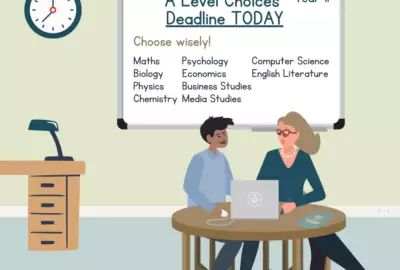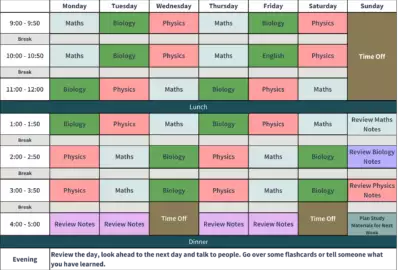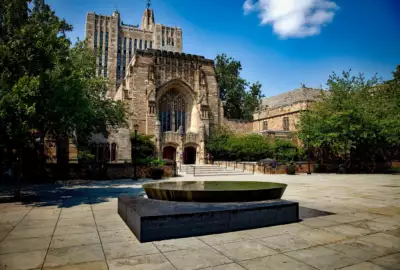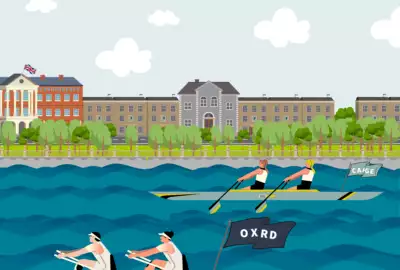Expert Insights
How to Prepare for A Levels: A Back-to-School Guide
Published 8th August 2025 by Alastair

Year 12 is a big change.
You will take fewer subjects, go deeper, and your independent study will matter as much as classroom time. This guide provides 6 practical tips on how to prepare in the holidays, how to start strong in September, how to survive Year 12 when the pace rises, and what to begin if Oxbridge is on your radar. We've even included a checklist you can use.
Read on!
The jump from GCSE to A Level is real. Content is denser, the expectation of independent reading is higher, and assessments test application and analysis as much as recall. Use the late-summer weeks to set yourself up without burning out. Clear your workspace, set up folders, both digital and paper, by subject and topic, and skim each exam board specification so you know the road ahead. A small amount of pre-reading, for example the first chapter of a core textbook or a primer, pays dividends when lessons begin.
If you struggled with particular GCSE foundations, algebra for sciences or economics, grammar for languages, spend short and regular sessions closing those gaps now. You do not need marathons. Consistent 25 to 40 minute blocks are enough to knock off rust and build confidence.
If you would like structured support before term starts, our A Level Tuition team can design a short pre-Year 12 programme to strengthen core skills and introduce A-Level ways of working.
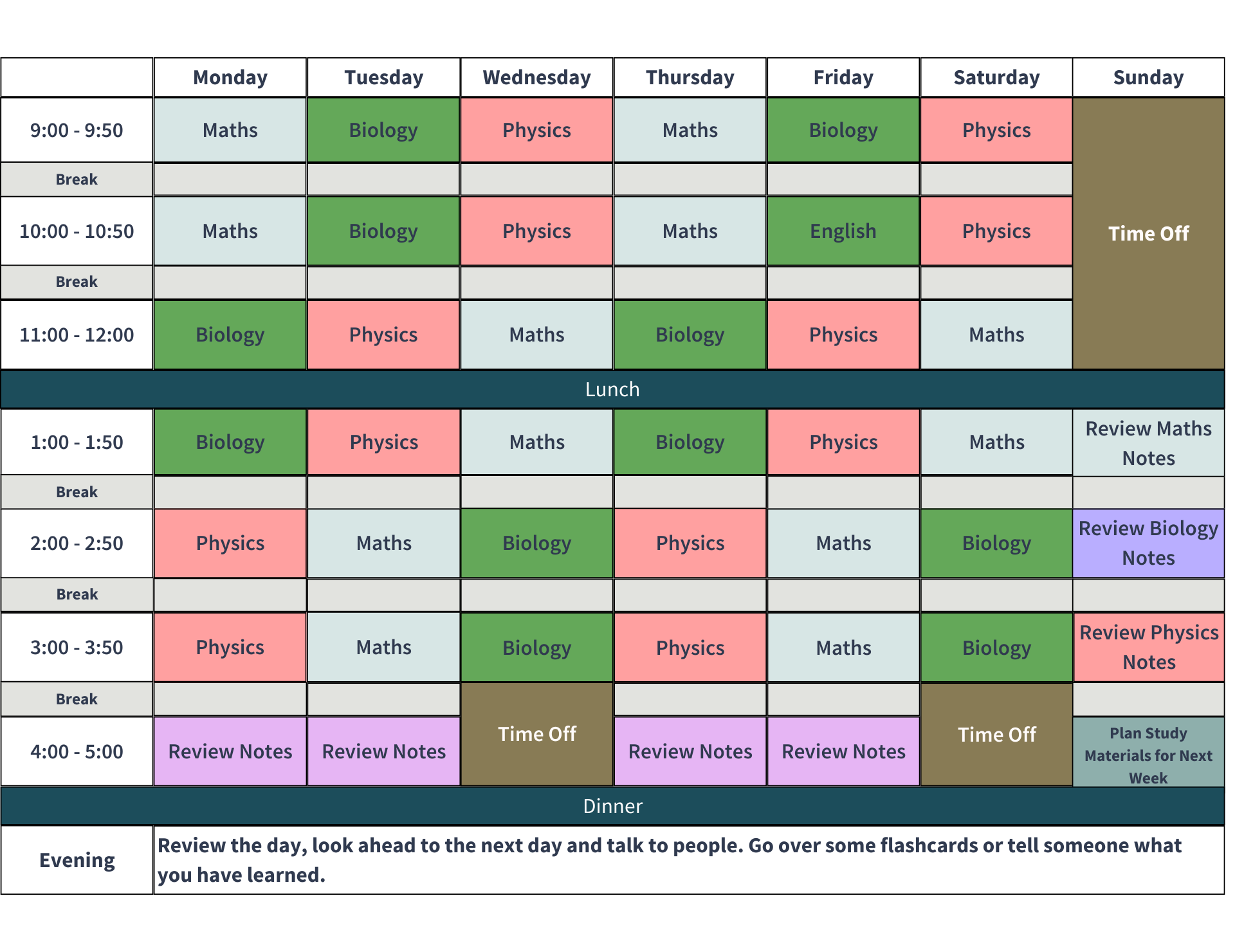
Treat September as a calibration period. After the first lesson in each subject, skim the relevant section of the specification and write a three line summary of what the exam will actually ask you to do with that content. Capture key definitions and one or two worked examples in your notes the same day. You are building a system you can revise from, not a scrapbook.
Create a simple weekly template. Block out school hours and travel, add two or three focused study sessions on school nights, one longer block at the weekend, and protect time off. Year 12 is a marathon, and over-committing early is the fastest route to under-performing later. If you are unsure how to pace it, a tutor can help you create and stick to a sustainable study rhythm.
If you still have a couple of weeks, pick one quick win per subject. For maths and sciences, try a topic overview video and two exam-style questions. For humanities, read one seminal essay or article and write a short reflection. For languages, read a graded reader or short story and note new structures. Keep it bite-sized and achievable. Start a reading log with one or two sentence reflections. Future you will use these for your personal statement.
It is also sensible to look ahead at university expectations now. UCAS publishes the official dates and deadlines for each cycle, which shape how you use Year 12 for exploration, super-curricular work and open days, UCAS dates and deadlines.
If university is likely, our University Consultancy team can map out a Year 12 timeline with you, shortlist courses, flag open days, and plan super-curricular exploration so there is no last-minute scramble.
Even if university is only a maybe, Year 12 is the time to understand the application rhythm. For most courses, the main UCAS equal consideration deadline usually falls in January of Year 13. For Oxbridge and most Medicine, Dentistry and Veterinary courses, it is 15 October of Year 13. Always check the current UCAS dates rather than relying on last year’s memory!
Do not obsess over UCAS Tariff points unless a course explicitly uses them. Many selective courses focus on grades and subject combinations, not tariff totals. UCAS provides a calculator if you need to translate qualifications into tariff points for particular providers.

If you're thinking about applying to university, Oxbridge and Russel Groups reward academic curiosity well. Go beyond classwork into super-curricular exploration that deepens your understanding of the subjects you hope to study, not generic extracurriculars.
If you have not finalised your A-Level mix, check preferred and required subjects for likely courses now. Russel Groups, Oxford and Cambridge publish subject specific pages and minimum grades. Many competitive courses expect A*AA or above and, in sciences, strong performance in both subjects and practical endorsements.
Treat entry requirements as a floor rather than a prediction. Year 12 is your opportunity to make those grades realistic through consistent practice and honest gap-closing. See Oxford admissions tests, and Cambridge admissions assessments for more information.

Aim to visit at least two universities during Year 12, in person or virtually, and keep short notes on course structure, teaching style, and location pros and cons. Alongside visits, build super-curricular depth. Read beyond the syllabus, attend lectures or masterclasses, and respond to what you have engaged with in writing or discussion. Cambridge highlights the academic value of super-curriculars over unrelated extracurriculars. Keep your efforts course relevant and reflective.
If you are leaning towards clinical courses, plan realistic work experience or insight into healthcare opportunities during holidays. Providers care about what you learnt about the profession as much as hours logged. Our team can advise on how to frame this in a personal statement and at the interview
| Task | When |
|---|---|
| Before September | |
| Set up study space and subject folders | Holidays |
| Download exam-board specifications for each subject | Holidays |
| Close key GCSE gaps with short daily practice | Holidays |
| Do light pre-reading for each subject | Holidays |
| Start a reading log for super-curricular notes | Holidays |
| Draft a simple weekly study timetable | Holidays |
| Check UCAS dates and note early deadlines | Holidays |
| Book at least one open day or virtual tour | Holidays |
| Create a super-curricular tracker | Holidays |
| Back up and organise digital files | Holidays |
| October to December | |
| Finalise weekly study timetable | October |
| Confirm assessment formats for each subject | October |
| Start retrieval and spaced review routine | October |
| Set two evening study blocks and one weekend block | October |
| Begin super-curricular reading log | October |
| Attend at least one open day or virtual session | October to December |
| Set up a UCAS Hub account | October |
| Draft course shortlist, aspire, solid, safe | October to November |
| Map admissions tests for likely courses | October to November |
| Set reminders for admissions test registration windows | November |
| Schedule a fortnightly timed practice per subject | October to December |
| Plan a manageable enrichment or volunteering activity | October to December |
| January to March | |
| Sit internal exams and review gaps | January |
| Meet teachers to discuss predicted grade trajectory | January to February |
| Draft a personal statement outline | February |
| Decide on EPQ and submit a proposal if applicable | February to March |
| Plan work experience or insight days | February to March |
| Apply for summer schools or taster lectures | February to March |
| Build regular reading into the weekly plan | January to March |
| Begin admissions test skills practice if needed | February to March |
| April to July | |
| Confirm Year 13 focus topics with teachers | April |
Year 12 rewards steady systems, not last-minute bursts. Use the holidays to set foundations, the first weeks to build routine, and the rest of the year to deepen understanding through regular retrieval, timed practice and reflective super-curricular work. If Oxbridge or other competitive courses are in sight, start early with reading, note keeping and clear awareness of admissions tests. Prioritise sleep, movement and boundaries so your study remains sustainable.
If you would like a tailored plan or targeted support, contact Ivy Education to arrange A Level Tuition or University Consultancy
Start with the exam specifications for each subject, set up a simple weekly timetable, and build a routine of retrieval practice and past-paper questions. Close any GCSE knowledge gaps early and keep brief, high-quality notes you can revise from later. If you need targeted help, consider A Level tuition.
Tidy your study space, download specifications, and do light pre-reading for each subject. Short daily sessions work best. Book at least one university open day and start a reading log for super-curricular reflection.
Fewer subjects, greater depth, and a higher expectation of independent study. Assessment focuses more on analysis and application rather than simple recall. Good organisation and consistent practice matter more than long hours.
Aim for two to three focused study blocks on school nights and a longer block at the weekend. Quality beats quantity. Increase time before internal assessments and use timed practice to check progress.
Keep notes concise, review little and often, and use timed questions to reduce exam anxiety. Prioritise sleep, movement, and one full evening off each week. Ask teachers early about problem topics or get support from an A Level tutor.
Create a UCAS Hub account in the autumn, shortlist courses by spring, and draft a personal statement in early summer. Oxbridge, Medicine, Dentistry and Veterinary Science have earlier deadlines in Year 13, so planning in Year 12 is essential.
Focus on super-curricular depth, not breadth. Read beyond the syllabus, write short reflections, and follow the current guidance for any admissions tests. Mock interviews in late Year 12 or early Year 13 help you practise explaining your thinking.
You do not need an EPQ for most courses, but it can strengthen an application by evidencing independent research and writing. Choose a topic that links to your intended degree and time box it so it does not crowd out A-Level study.
Start from week one with retrieval practice and short, regular reviews. Use internal exams to stress test your approach and refine your notes. Build a light summer plan so you enter Year 13 with momentum.



